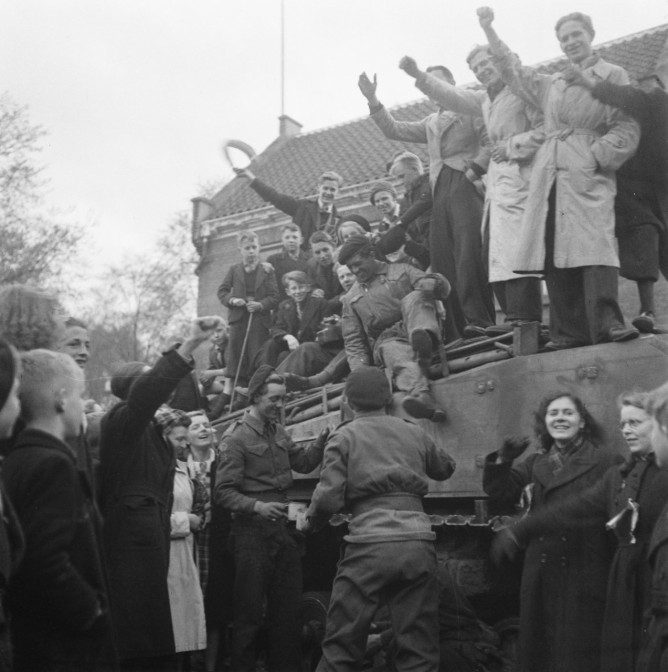The term oorlog means war.
When Dutch people speak about “the war,” they usually refer to World War II. From 10 May 1940 until 5 May 1945, the Netherlands was occupied by Germany. Some parts of the country were liberated earlier, but it would take until 5 May 1945 for the Germans to surrender.
That will be 71 years ago this week. On May 4th, we commemorate the fallen, not just during World War II, but everybody who died as a result of war or peace-keeping missions since the outbreak of World War II. At 8 PM, the whole country will observe two minutes of silence.
On May 5th, we celebrate our liberty. Liberation festivals are held throughout the country. It is an official holiday so many people have the day off from work or school.

Liberation of Twente, March 1945. Credits: collection Nationaal Archief (CC-BY)


There is an excellent book in English by Walter B. Maass titled “The Netherlands at War: 1940-1945”. Probably no country suffered more under the Nazis than did the Netherlands. The Nazis had convinced themselves that their Dutch brethren would embrace them with open arms. When it became clear that the vast majority of the Dutch did not want the Nazis, the Nazis became like a spurned lover, going out of their way to be particularly cruel to the Dutch.
Thank you for this tip, I had not heard about this book before but will look for it in the library.